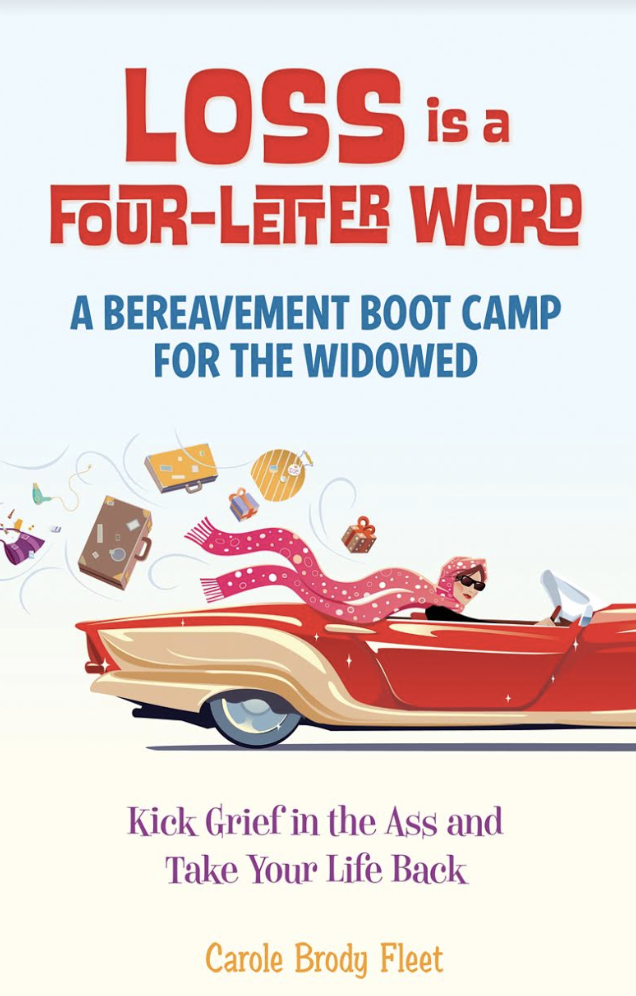Loss. A word containing only four letters, yet it is so enormous in scope that it has the capacity to strike terror into hearts everywhere. Even more terrifying is the reality of loss, specifically, the loss of a spouse. I know that terror. I know that reality. I did that loss.
After a lengthy, highly decorated and award-winning career as a police officer, my husband Mike retired from his department, only to be diagnosed with ALS (amyotrophic lateral sclerosis, commonly known as Lou Gehrig’s disease) two weeks later. With that diagnosis arrived a devastating new reality, that in the not-too-distant future, our then nine-year-old daughter Kendall and I were going to be alone.
With more strength, grace, and dignity than one could possibly imagine, Mike courageously battled his illness with every bit of strength in his very being. Three years after the first symptoms appeared and two years after his diagnosis, the end came peacefully, at home, as was Mike’s wish.
Mike’s was an extremely large funeral. The funeral director remarked that it was the second-largest funeral that their company had ever handled. Law enforcement officers of varying ranks and representing police departments throughout several states were in attendance, as well as officials from all manner of state and federal government agencies. It was a day rich in remembrance, tradition, and honor—simultaneously fraught with what I can only describe as a hazy, surreal mélange of overwhelming grief and Novocain-like numbness, occasionally punctuated by mental snapshots of one of the worst days that I will ever endure.
Then the next morning came . . . and what everyone was referring to as my “new normal” had unceremoniously begun.
The loss of a spouse is frightening. It brings us to our knees. It leaves us feeling rudderless—and the ensuing grief can be all-consuming and seemingly never-ending. Regardless of the circumstances, spousal loss devastates on numerous levels and in countless ways. Whether the loss is brand new or decades old, it nonetheless cuts, wounds, and scars. Worst of all, and if we permit it to do so, widowhood can also be capable of keeping us from moving forward into a new life filled with abundance, and peace, and all of the wonderful things that life offers to us on a daily basis.
Personally, I flat-out refused.
I refused to be defined by a set of circumstances that would have otherwise kept me in mourning for the rest of my life, not to mention the irreparable harm that permanent residence in said mourning place would have caused to my adolescent daughter. I refused to stay inside, alone and sobbing in the dark for the rest of my days. I refused to allow the disease that stole my husband from his family and our future to claim our lives as well.
Instead, I made a conscious decision. I decided that everlasting mourning was a false destiny; a destiny that I did not choose—and if I do not choose something, it generally means that I do not want it. I decided to both embark upon and model a grief recovery that, while not without a few hiccups, was going to be healthy and productive. I decided that I would take back control of a life over which I’d had little control since the evil of illness invaded and commandeered our lives.
I decided that even though my future was not going to be the one that we had originally planned, I am nevertheless still the architect who can design and frame and couch and inform the future that I wish for both myself and my daughter.
In other words, I decided to kick grief right in its great big ugly ass.
How?
By refusing to live a life any less than what any of us deserve to live—and that includes you.
Follow us on Facebook for all the latest news on how you can keep Thriving.
More from Thrive Global:
8 Things You Should Do After 8 P.M. If You Want to Be Happy and Successful
The One Relationship You’re Probably Ignoring
The One Word That Can Hurt Your Reputation at Work
Published with permission from Loss Is a Four-Letter Word: A Bereavement Boot Camp for the Widowed–Kick Grief in the Ass and Take Your Life Back. Copyright @2018 Health Communications, Inc. (HCI)


